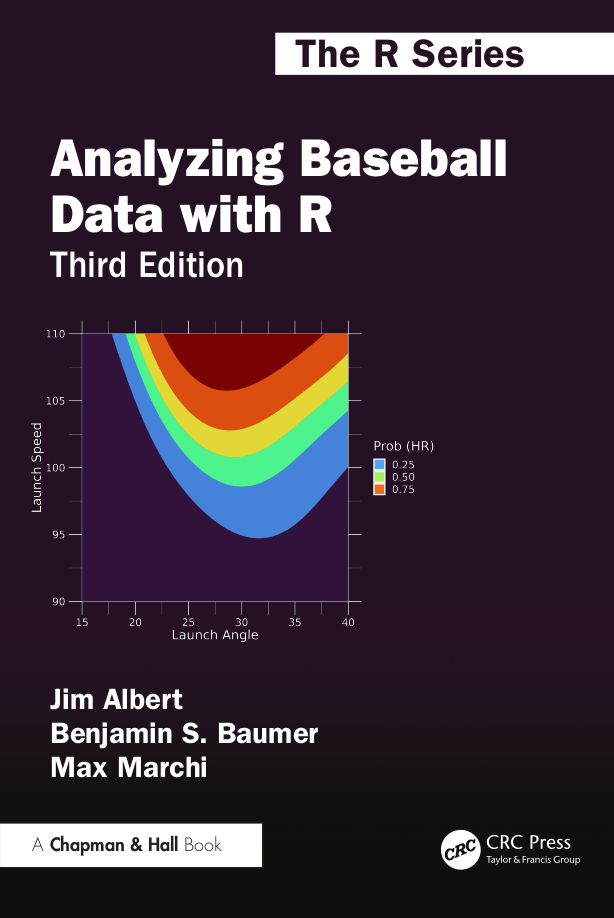Analyzing Baseball Data with R (3e)
Third edition
Foreword

Back in the late 1980s, as a college student, I would go to the NHL offices in downtown Montreal, and pick up their official end-of-season statistics package. This was something that was reserved for the media, but somehow I had the idea to ask, and they were kind enough to oblige. Since I was learning dBase, I then had to manually enter every piece of data in that package, probably some 20,000 discrete data values. Combining sports, numbers, and computers was a labour of love for me. Add in that in the 1980s, Pete Palmer and Bill James inspired the sabermetric revolution: my career path was set, as was that of thousands more.
Our community has continued to grow exponentially, thanks to those who inspire the next generation. And inspiring the next generation is what the authors of Analyzing Baseball Data with R are doing. They are setting the career path for still thousands more. We all need some sort of kickstart to take that first or second step. You may be a beginner R coder, but you need access to baseball data. How do you access this data, how do you manipulate it, how do you analyze it? This is what this book does for you. But it does more, by doing what sabermetrics does best: it asks baseball questions. Throughout the book, baseball questions are asked, some straightforward, and others more thought-provoking. Either way, the tools are introduced, whether plotting data, or performing calculations in order to answer those question. And as good sabermetrics does, each answer will make you ask two more questions.
In addition to being an ideal reference in book form, the authors generously make the content and data readily accessible online, through GitHub as well as in blog form. Not only are the references ideal, but they are also welcoming to new readers. You will find nuggets throughout to get you started. And more than anything, with Jim, Max, and Ben, you will simply find good people. Having the next generation being inspired by talented and good folks is all that we can ask for. And they deliver.
Tom Tango
Senior Data Architect, Major League Baseball